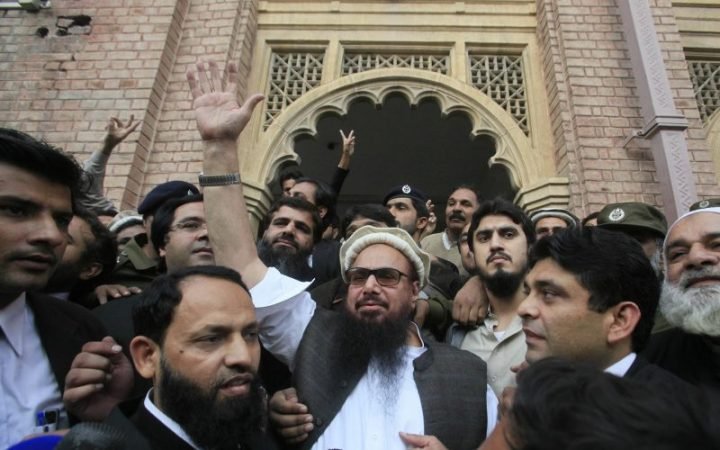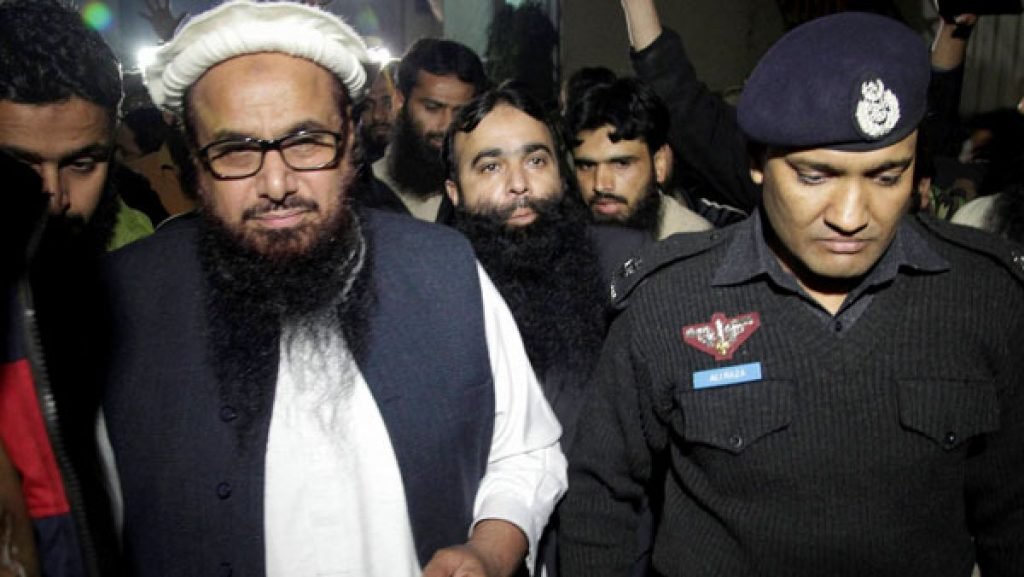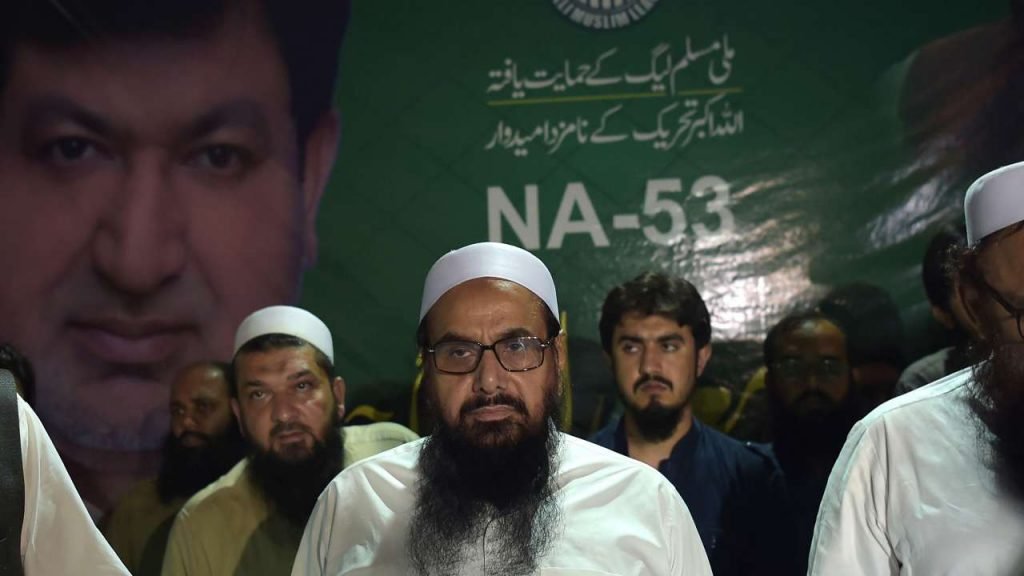The Politics behind the conviction of Hafiz Saeed

The mastermind behind the 26/11 attack in Mumbai that shook the world, Hafiz Saeed, was recently convicted by Anti-Terrorism Court, Lahore, Pakistan. Hafiz Saeed was sentenced for 10-year jail for two terror financing cases on November 19, 2020. Although, this was not the first time that Pakistan has convicted the well-known terrorist. He was arrested by Pakistan in 2019 as well to show the world that Pakistan, too, is fighting terrorism along with other countries. Hafiz Saeed was sentenced for 11 years jail in February 2020 by the court that convicted the terrorist in November 2020. Where many countries like the United States supported and appreciated Pakistan’s step towards combatting terrorism by arresting the terrorist who has been sanctioned by the United Nations Terrorism Council, India did not celebrate the arrest of Hafiz Saeed. The terrorist was not once arrested for any terror attack but simply for terror financing. Pakistan continues to shrug shoulders when it comes to the involvement of Hafiz Saeed in the 26/11 attack. It is also very well known that the terrorists get VIP treatment by the Pakistani government and are allowed to carry on their work and meetings which shows how serious the country actually is when it comes to combatting terrorism.
The skepticism around the arrest of Hafiz Saeed is not a kind of reaction which is uncommon or shocking. Pakistan and terrorism have always been together, hand in hand, so any step by the country against terrorism raises many eyebrows and questions and doubts. Hafiz Saeed was arrested in February on the eve of meeting of the country with Financial Action Task Force which has put Pakistan in the grey list for money laundering and terror financing in 2018. It was very well understood how this was a step to get away with any serious action by FATF against the country as the organization warned Pakistan if appropriate progress was not shown from Pakistan till February 2020, then serious actions would be taken by FATF against the country. Arresting Hafiz Saeed was that “progress” that allowed Pakistan to walk down the street. With China presiding the FATF from 2019-2020, Pakistan was hopeful that it would get off the grey list and could also save the economic and strategic relationship between China and Pakistan which would have been affected if Pakistan was to be blacklisted by FATF. China has always acted as a strong ally of Pakistan and has bailed out Pakistan whenever necessary. Be it blocking India’s move of blacklisting Masood Azhar, JeM chief, after the Pathankot attack by the terrorist or trying to block sanctions on Jamaat-Ud-Dawa chief, Hafiz Saeed, China has always stood rock solid with Pakistan.

Conviction of Hafiz Saeed was nothing but a move to get away with any serious action by the international community in future. Pakistan was asked to take up serious actions against its terrorist funding and to come up with an action plan by the end of the year 2019, but the term got extended due to Covid-19. Just a few days away from crossing the deadline given by FATF, Hafiz Saeed was arrested. There is certainly no doubt that the global terrorist was arrested under immense international pressure. Being amongst the countries who has been blacklisted by FATF would not prove to be a good situation for Pakistan. Being blacklisted by FATF would make things way worse for the already struggling Pakistan. Being among the very few countries who have been blacklisted by FATF would surely close more than one gate for Pakistan. There are many consequences of being blacklisted by FATF. One of them being the uncertainty of financial aid by member countries. Pakistan is mostly dependent on imports and exports and international aid and being blacklisted would severely impact Pakistan’s economy which is already in crisis. The blacklisting would not only affect Pakistan, but China as well, as China has invested billions of dollars in Pakistan through projects like China Pakistan Economic Corridor (CPEC). This is another reason why China would try its best that Pakistan is not blacklisted by FATF.
India, on the other hand, is trying its best to put Pakistan’s name on the blacklist. India, since a very long time, has been planning to prepare a report consisting of evidence to prove how Pakistan has failed to control the spread of terrorism and terror funding, in fact the country has immensely supported the growth of these organizations to the international community. By the next FATF meeting in February 2021, India is trying hard to collect all the possible evidences to prove how Pakistan is the breeding hub of terrorism and to finally put the country’s name on the blacklist. India has been the target of the terrorist organisations since a very long time now and it is Pakistan who supports these attacks. The sensitive relationship between these two countries is not new and things have been getting worse since the Pulwama attack in 2016. India wants Pakistan to pay the price for all the terrorist attacks which the country has sponsored immensely. India has been pushing towards taking stricter actions against Pakistan for terror financing and supporting terrorist organisations and has been gathering global support in doing the same. This can be seen in the meetings of the United Nations where India tries hard to gather support against Pakistan and urges to take stricter action against the country which is home to most wanted terrorists. Although India has been trying to do so since a very long time, in future too, it will not be a cakewalk for the country.

Though the politics revolving around the conviction of the global terrorist, Hafiz Saeed, is well understood by many organisations and countries, it is also important to understand how this affects world politics. Being easy on Pakistan for being home to the global terrorist and for funding terrorist attacks poses a great threat. This threat is well understood by India. Being a victim to numerous attacks sponsored by Pakistan, India very clearly understands why it is important to gather global support against Pakistan. Relationship between China and Pakistan also poses a security threat to India and by blacklisting Pakistan, the relationship between the two allies will also be severely affected which would be a relief for India.


















